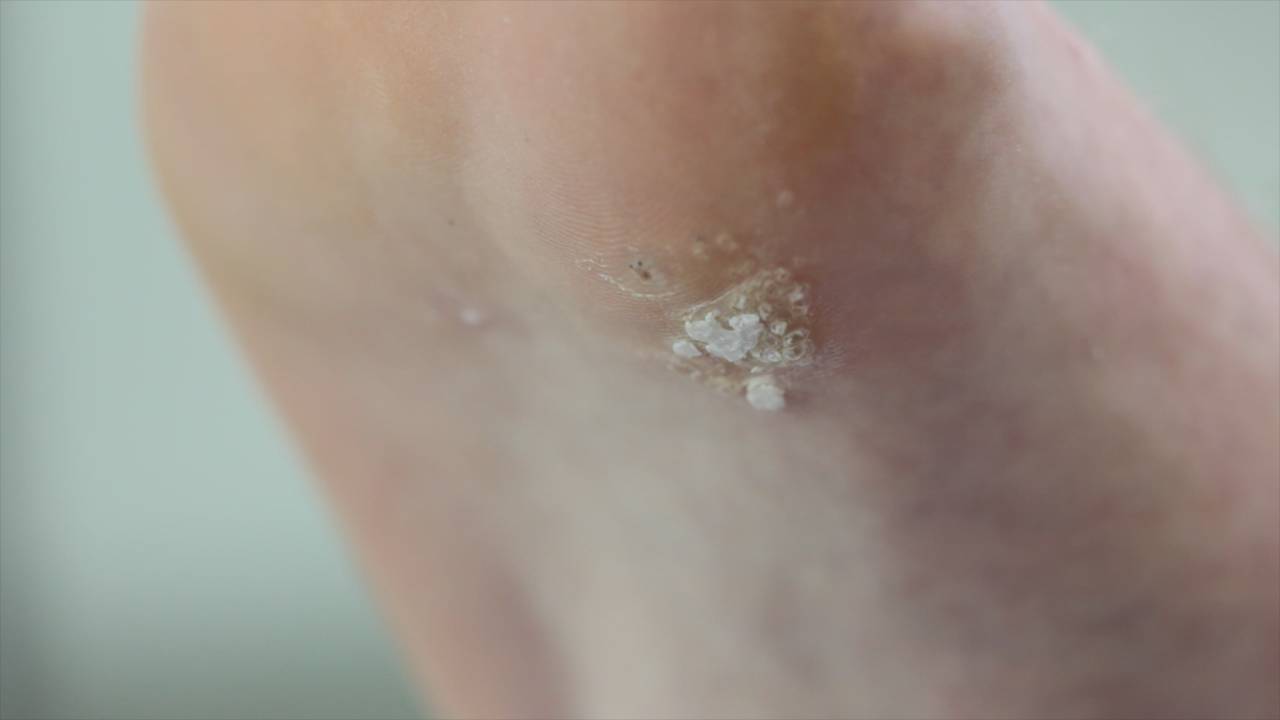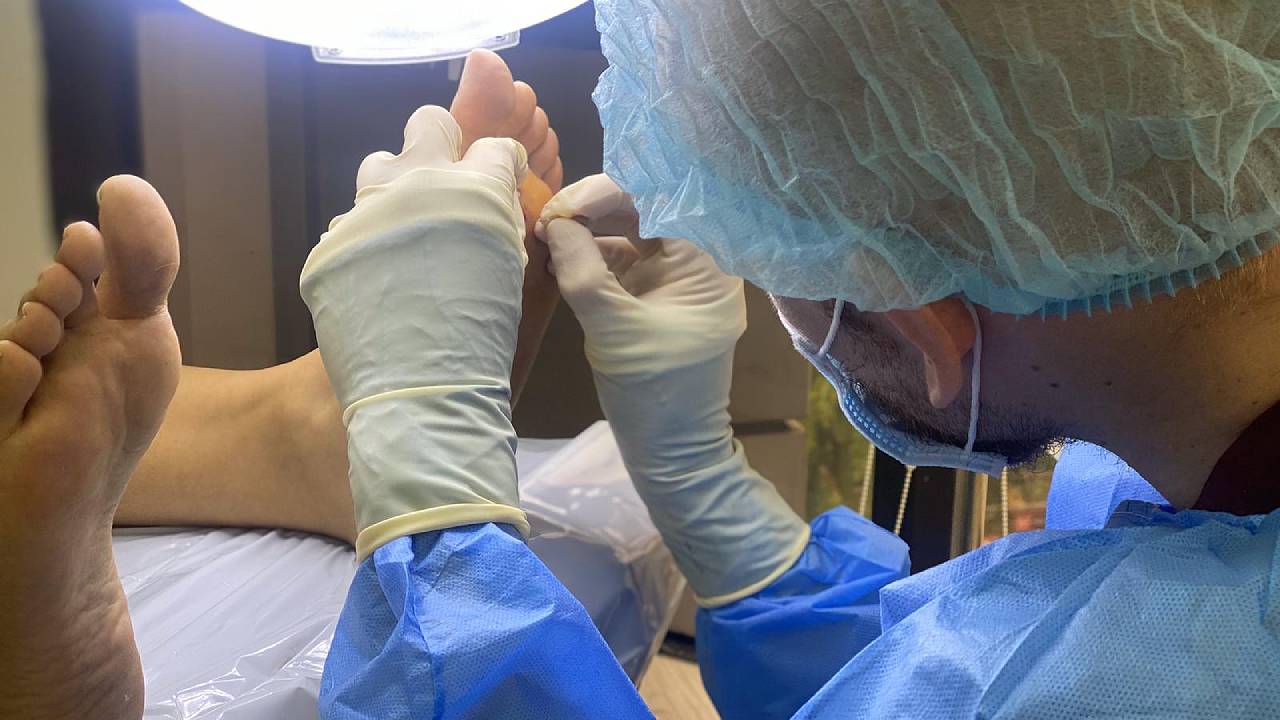What Are Plantar Warts?
Plantar warts (also known as verrucas) are skin growths that occur on the feet or surrounding areas. They are caused by the human papillomavirus (HPV), that has entered the skin through cracks or other breaks in the skin.
Pain occurs when the callus over the wart thickens or when the area experiences a lot of pressure, such as when it is squeezed between fingers. Neglect or acid-based home remedies may worsen the pain and discomfort due to the build-up of pus.

Should I Seek Care For Plantar Warts?
Yes, warts are viral in nature and can spread quickly in the from one part of the body to another, patients with one wart may notice multiple lesions present on their feet. However, every individual’s immune system responds differently to HPV, hence not everyone who comes into contact with the virus will develop warts.
While most warts are harmless, they can be painful. If you have a wart that is causing pain or discomfort, or if you live with someone who is at an increased risk of developing warts, such as a child, an elderly person, or someone who is immune-compromised, it is important to seek podiatric intervention promptly.

How Can I Remove Plantar Warts?
Your podiatrist will assess the wart(s) to determine the best solution. Some common methods include:
- Cryotherapy – A freezing agent, such as liquid nitrogen, is applied to the wart over multiple sessions. This procedure can be painful, so your podiatrist may numb the area first.
- Wart needling – Wart needling involves the repeated pricking of the wart with a hollow needle. This activates the patient’s immune system to engage and destroy the virus responsible for the wart and encourages organic healing with minimal discomfort and downtime.
As traditional methods for resolving plantar warts can cause discomfort, it is recommended to wear a comfortable pair of shoes to the clinic and allow a few hours of rest after the consultation.
Frequently Asked Questions
While some home remedies, such as salicylic acid or apple cider vinegar are sometimes used to resolve plantar warts, it is important to speak to a foot specialist or podiatrist before using them. Off the shelf products often contain acid-based ingredients that can burn the wart and surrounding skin. This is particularly risky for patients with compromised immune systems, such as those with diabetes or neuropathy. Patients with diabetes may have difficulty fighting off infections or recovering from wounds, while those with neuropathy could unknowingly aggravate their wounds due to the lack of sensation.
Plantar warts that are left unaddressed can cause pain and spread to other parts of the body, and even to other people in the household. Over time, they may merge to form a mosaic wart, which will make it harder to resolve.
In many cases, depending on the individual’s condition and immune system, minor plantar warts may resolve on their own, but severe or mosaic plantar warts can cause prolonged pain and spread across the patient’s body. It is advisable to see a foot specialist or podiatrist to ensure that you receive proper care to minimise the risk of recurrence.
No, they are not. There are over 100 different strains of human papillomavirus, and the ones that cause plantar warts are different from those that are typically responsible for genital warts. However, plantar warts are contagious and can spread to other parts of your body, such as your toes or fingers.
Scratching, cutting, or pulling out a plantar wart may seem inviting. However, amateur surgery may not successfully remove the core of the wart, leading to a high likelihood of recurrence or serious infection.
Human papillomavirus (HPV) thrives in Singapore’s warm and moist environment, and can be found in common places like swimming pools, locker rooms, or even bathrooms at home. Another key way of transmission is through exposure. Children and teens are much more likely to contract warts as opposed to their adult counterparts, and can go on to spread the virus to their family members or close contacts.
Several methods to prevent plantar warts include:
- Changing your shoes and socks regularly
- Avoiding barefoot walking around swimming pools and locker rooms
- Limiting interaction with family members that have warts
- Washing hands thoroughly after touching warts, including your own




